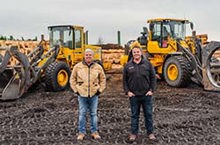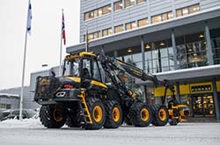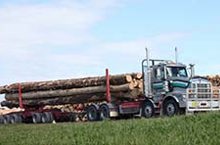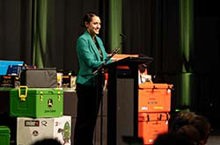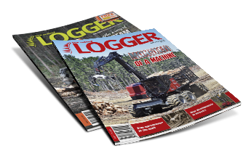
There are no skidders or tracked feller bunchers within the 20-piece logging fleet owned by Prince George, Canadian, B.C.-based Freya Logging. Their fleet consists primarily of wheeled harvesters and forwarders—and that’s by design.
Company forester, Liam Parfitt, describes the majority of their harvesting activity as “selective logging where most of the merchantable wood is removed”.
Overall, they leave more standing structure and understorey in the forest while creating less ground disturbance compared to conventional clearcut logging using feller bunchers and skidders—and what Freya Logging is doing has lately caught the attention of other loggers and several forest companies.
Their fleet and logging method is without a doubt an alternative approach and could rightly be described as following the European model. However, the question for Canadian loggers has always been economics. Mr Parfitt says that they are competitive with conventional logging.
“We can compete with conventional logging on a clearcut and we can do it cheaper than they can on selective logging,” he says.
What could be driving this recent interest in Freya Logging’s approach is the issue of ‘social license’ becoming more prominent within forest management circles, where governments and timber license holders are demanding a more careful logging style to earn benefits, such as maintaining habitat and biodiversity – something New Zealand is hyper-aware of since the recent extreme weather events. Greater uptake of this style of logging remains to be seen, although Freya Logging is finding no lack of work these days.
To read the full article by writer, Tony Kryzanowski, get your copy of the October 2023 edition of NZ Logger magazine, on sale from 2 October. Check the link on this page to subscribe to either a printed or digital copy (or both).

